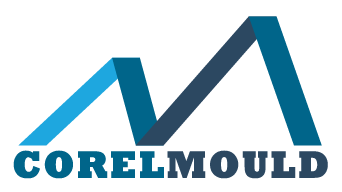6 principals to design for plastic parts by plastic injection molding
What benefits of insert molding does it provide?
Top 6 engineering plastic materials
Choosing the right material depends on your specific needs and priorities. Consider factors like:Cost: If budget is a major concern, ABS or PP might be good choices.
Performance: For high-impact applications or extreme temperatures, PC or Nylon might be necessary.
Durability: Choose Nylon for wear-resistant parts or PC for scratch-resistant surfaces.
Aesthetics: If color and transparency are crucial, PC or PET might be good options.
Here are 6 top engineering plastic materials and their pros and cons:
1. Polycarbonate (PC):
Pros:
- High impact resistance
- Excellent heat resistance
- Good dimensional stability
- Can be clear or opaque
- Flame retardant (some grades)
Cons:
- More expensive than ABS and Nylon
- Limited chemical resistance
- Scratch-prone
2. Acrylonitrile Butadiene Styrene (ABS):
Pros:
- Cost-effective
- Good impact resistance
- Chemically resistant to common chemicals
- Good machinability
- Wide range of colors and finishes
Cons:
- Lower heat resistance than PC and Nylon
- Susceptible to UV degradation
- Lower dimensional stability than PC and Nylon
3. Nylon (Polyamide):
Pros:
- Exceptional abrasion resistance
- High tensile strength
- Low friction
- Good chemical resistance
- Wide temperature range
Cons:
- Highest cost among these materials
- Moisture absorption can cause dimensional changes
- Limited color options
- Lower impact resistance than ABS and PC
4. Acetal (Polyoxymethylene, POM):
Pros:
- Excellent low friction coefficient
- High dimensional stability
- Good creep resistance
- Good chemical resistance
Cons:
- Not as impact resistant as other options
- Can be susceptible to stress cracking
- Limited color options
- More expensive than ABS
5. Polypropylene (PP):
Pros:
- Very cost-effective
- Good chemical resistance
- Good fatigue resistance
- Can be flexible or rigid depending on grade
- Food-safe grades available
Cons:
- Lower heat resistance than PC and Nylon
- Lower impact resistance than ABS and PC
- Flammable (requires additives)
6. Polyethylene Terephthalate (PET):
Pros:
- Excellent transparency
- Good chemical resistance
- Good dimensional stability
- Recyclable
Cons:
- Lower heat resistance than most options
- Lower impact resistance than ABS and PC
- Absorbs moisture slightly
Consulting with a material engineer or experienced plastic injection molding professional can help you select the optimal material for your specific project.


